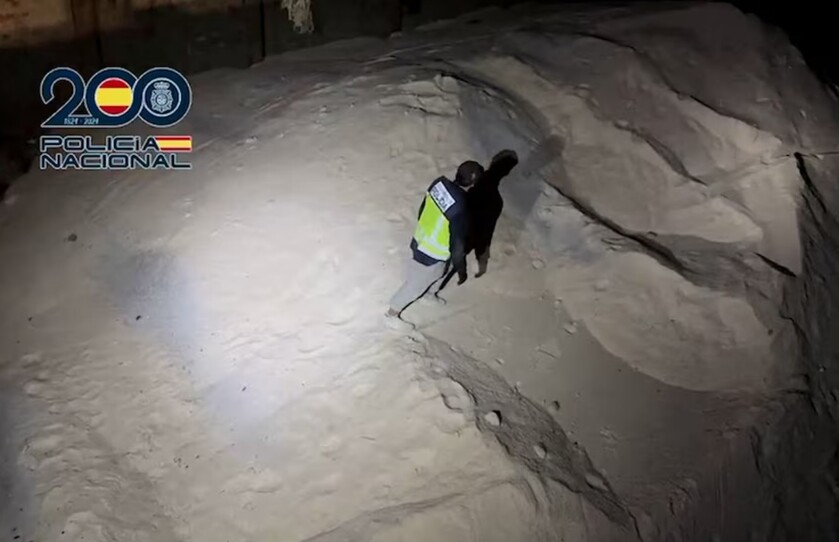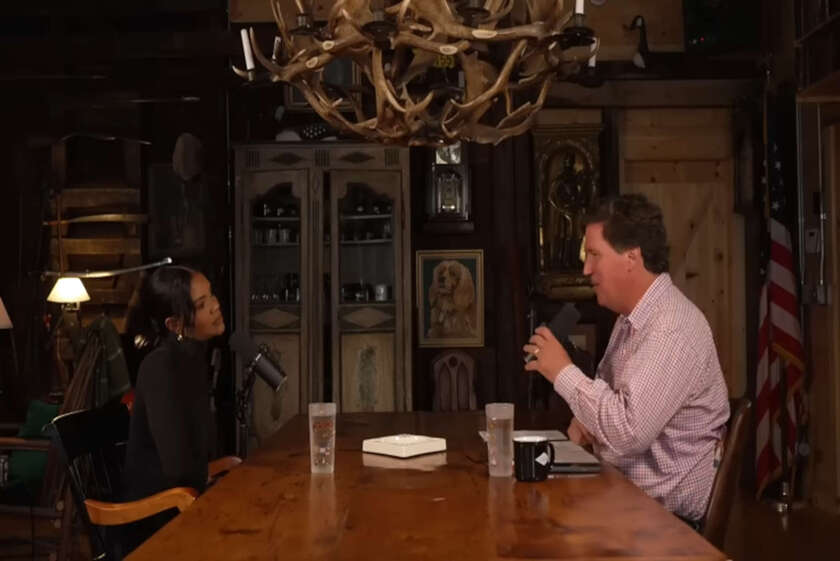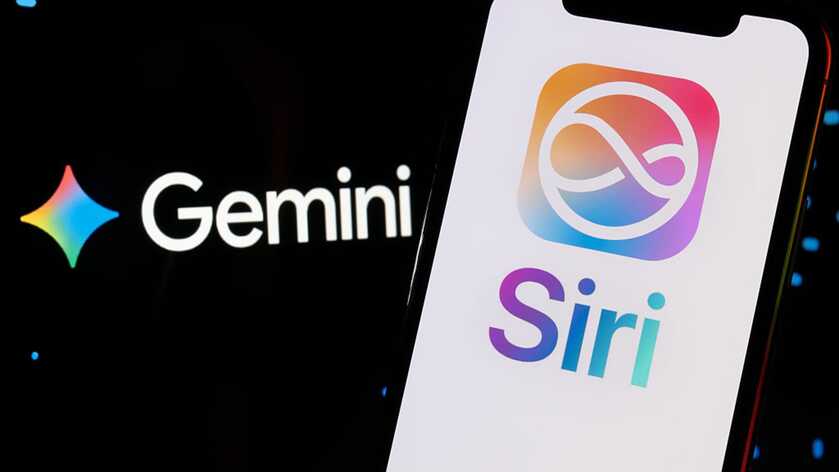U.S. President Donald Trump spent the first months of his term holding back Israel’s push for an assault on Iran’s nuclear program. With the war underway, his posture has gyrated as he weighs sending in the U.S. military.
By the end of last month, American spy agencies monitoring Israel’s military activities and discussions among the country’s political leadership had come to a striking conclusion: Prime Minister Benjamin Netanyahu was planning for an imminent attack on Iran’s nuclear program, with or without the participation of the United States.
Netanyahu had spent more than a decade warning that an overwhelming military assault was necessary before Iran reached the point that it could quickly build a nuclear weapon. Yet he had always backed down after multiple American presidents, fearful of the consequences of another conflagration in the Middle East, told him the United States would not assist in an attack.
But this time, the American intelligence assessment was that Netanyahu was preparing not just a limited strike on the nuclear facilities, but a far more expansive attack that could imperil the Iranian regime itself — and that he was prepared to go it alone.
The intelligence left President Trump facing difficult choices. He had become invested in a diplomatic push to persuade Iran to give up its nuclear ambitions, and had already swatted down one attempt by Netanyahu, in April, to convince him that the time was right for a military assault on Iran. During a strained phone call in late May, Trump again warned the Israeli leader against a unilateral attack that would short-circuit the diplomacy.
But over the last several weeks, it became increasingly apparent to Trump administration officials that they might not be able to stop Netanyahu this time, according to interviews with key players in the administration’s deliberations over how to respond and others familiar with their thinking. At the same time, Trump was getting impatient with Iran over the slow pace of negotiations and beginning to conclude that the talks might go nowhere.
Contrary to Israeli claims, senior administration officials were unaware of any new intelligence showing that the Iranians were rushing to build a nuclear bomb — a move that would justify a pre-emptive strike. But seeing they would most likely not be able to deter Mr. Netanyahu and were no longer driving events, Mr. Trump’s advisers weighed alternatives.
At one end of the spectrum was sitting back and doing nothing and then deciding on next steps once it became clear how much Iran had been weakened by the attack. At the other end was joining Israel in the military assault, possibly to the point of forcing regime change in Iran.
Trump chose a middle course, offering Israel as-yet undisclosed support from the U.S. intelligence community to carry out its attack and then turning up the pressure on Tehran to give immediate concessions at the negotiating table or face continued military onslaught.
Five days after Israel launched its attack, Trump’s posture continues to gyrate. The administration at first distanced itself from the strikes, then grew more publicly supportive as Israel’s initial military success became evident.
Now Trump is seriously considering sending American aircraft in to help refuel Israeli combat jets and to try to take out Iran’s deep-underground nuclear site at Fordo with 30,000-pound bombs — a step that would mark a stunning turnabout from his opposition just two months ago to any military action while there was still a chance of a diplomatic solution.
The story of what led up to the Israeli strike is one of two leaders in Trump and Netanyahu who share a common goal — preventing Iran from getting a nuclear bomb — but who are wary of each other’s motives. They speak often in public about their strong political and personal bonds, and yet the relationship has long been beset by mistrust.
Interviews with two dozen officials in the United States, Israel and the Persian Gulf region show how Trump vacillated for months over how and whether to contain Netanyahu’s impulses as he confronted the first foreign policy crisis of his second term. It was a situation he faced with a relatively inexperienced circle of advisers handpicked for loyalty.
This year he told a political ally that Netanyahu was trying to drag him into another Middle East war — the type of war he promised during his presidential campaign last year he would keep America out of.
But he also came to believe the Iranians were playing him in the diplomatic negotiations, much as President Vladimir V. Putin of Russia did as Trump sought a cease-fire and peace deal in Ukraine.
And when Israel chose war, Trump cycled from skepticism about attaching himself too closely to Netanyahu to inching toward joining him in dramatically escalating the conflict, even bucking the view that there is no immediate nuclear threat from Iran.
As he rushed back to Washington from a Group of 7 summit in Canada early on Tuesday morning, Trump took issue with an element of public testimony of Tulsi Gabbard, his director of national intelligence, that the intelligence community did not believe Iran was actively building nuclear weapons even as it enriches uranium that could ultimately be used for a nuclear arsenal. “I don’t care what she said,” Mr. Trump told reporters. “I think they were very close to having them.”
For Netanyahu, the last several months brought to an end years of trying to cajole the United States into backing or at least tolerating his long-held desire to deal Iran’s nuclear program a crippling blow. He appears to have judged, correctly, that Trump would ultimately come around, if only grudgingly.
Beyond the lives lost and destruction wrought, the crisis has also laid bare schisms within Trump’s party between those inclined to reflexively defend Israel, America’s closest ally in the region, and those determined to keep the United States from getting further mired in the Middle East’s cycle of violence.
In the middle was Trump, determined to block Iran’s path to a bomb and caught between cultivating his own image of strength and the potential strategic and political consequences of acting aggressively against Iran.
Asked for comment, a White House spokesman pointed to public comments made by Trump about not allowing Iran to obtain a nuclear weapon.
‘I Think We Might Have to Help Him’
When Trump met with his top advisers at the wooded presidential retreat of Camp David late on Sunday, June 8, to review the fast-evolving situation, the C.I.A. director, John Ratcliffe, provided a blunt assessment.
It was highly likely, he said, that Israel would soon strike Iran, with or without the United States, according to two people familiar with the briefing, who spoke on the condition of anonymity to describe a confidential discussion.
The president sat at the head of the table in a rustic conference room inside Laurel Lodge. There were no slides, only maps prepared by the chairman of the Joint Chiefs of Staff, Gen. Dan Caine. For two and a half hours, he and Mr. Ratcliffe described their expectation of an imminent Israeli attack. Gabbard was on National Guard duty that weekend and was not included in the meeting.
John Ratcliffe, the C.I.A. director, provided a blunt assessment of the fast-evolving situation between Iran and Israel at Camp David in June.
Trump’s advisers had been preparing for this moment. In late May, they had seen intelligence that made them concerned that Israel was going to move ahead with a major assault on Iran, regardless of what the president was trying to achieve diplomatically with Tehran.
Based on that intelligence, Vice President JD Vance and Marco Rubio, in his joint role as secretary of state and national security adviser, encouraged an effort to give the president a range of options so he could make quick decisions if necessary about the scope of American involvement.
Ratcliffe’s intelligence-gathering efforts went into overdrive. And in the two weeks leading up to the Camp David meeting, Mr. Trump’s top advisers met multiple times to get on the same page about what the menu of potential options might be.
The day after the Camp David meeting, Monday, June 9, Mr. Trump got on the phone with Netanyahu. The Israeli leader was unequivocal: The mission was a go.
Netanyahu laid out his intentions at a high level, according to three people with knowledge of the call. He made clear that Israel had forces on the ground inside Iran.
Trump was impressed by the ingenuity of the Israeli military planning. He made no commitments, but after he got off the call, he told advisers, “I think we might have to help him.”
Still, the president was torn over what to do next, and quizzed advisers throughout the week. He had wanted to manage Iran on his own terms, not Netanyahu’s, and he had professed confidence in his deal-making abilities. But he had come to believe that the Iranians were stringing him along.
Unlike some in the anti-interventionist wing of his party, Trump was never of the view that America could live with, and contain, an Iran with a nuclear bomb. He shared Netanyahu’s view that Iran was an existential threat to Israel. Netanyahu, he told aides, was going to do what was necessary to protect his country.
Israel had begun preparing in December for an attack on Iran, after the decimation of Hezbollah, an Iranian proxy, and the collapse of the Assad regime in Syria, opening up airspace for a bombing campaign.
Netanyahu made his first visit of the second Trump term to the White House on Feb. 4. He presented a gold-plated pager to Trump and a silver-plated pager to Vance — the same devices the Israelis had secretly packed with explosives and sold to unwitting Hezbollah operatives who would later be maimed and killed in a devastating remote-control attack on the Iran-backed Lebanese group. (Trump later told an ally he was disturbed by the gift.)
Netanyahu gave Trump a presentation about Iran in the Oval Office, walking him through images of the country’s various nuclear sites.
Israeli intelligence showed that Iran was making cruder and faster efforts to get to a nuclear weapon, and the weaker the Iranians got, the closer they moved to the bomb. In terms of the enrichment of uranium, Iran was days away from where it needed to be, but there were other components it required to complete the weapon.
The Israelis made an additional argument to Trump: If you want diplomacy to succeed you have to prepare for a strike, so there is real force behind the negotiations. Privately, they fretted that Trump would take what they viewed as an inadequate deal with Iran, similar to the 2015 deal negotiated by President Barack Obama, and that he would then declare mission accomplished. Netanyahu told Trump that the Iranians would be able to rebuild their air defenses that were destroyed during an Israeli attack in October, adding to the urgency.
After his election in November, Trump had named a close friend, Steve Witkoff, as his Middle East envoy, and gave him the job of trying to reach a deal with Iran. Trump, elected on a platform that promised to avoid military entanglements abroad, seemed to relish the idea of coming to a diplomatic resolution.
From the beginning of the administration, the Iranians were putting out feelers from a handful of countries to open a diplomatic path with the new administration. Then Trump made his own dramatic move: He sent a letter to Iran’s supreme leader, Ayatollah Ali Khamenei.
In early March, visitors to the Oval Office or guests on Air Force One were regaled by Trump about his “beautiful letter” to the ayatollah. One visitor treated to a live rendition recalled the letter’s basic message as: I don’t want war. I don’t want to blow you off the map. I want a deal.
Trump knew he was wading into dangerous political territory. More than perhaps any other subject, the Israel-Iran issue splits Trump’s coalition, pitting an anti-interventionist faction, led by media figures like the influential podcast host Tucker Carlson, against anti-Iran conservatives like the radio host Mark Levin.
But inside the administration, despite much hype about disagreements between “Iran hawks” and “doves,” ideological divisions were far less important than they were in Trump’s first term, when officials like Defense Secretary Jim Mattis and Secretary of State Rex Tillerson viewed the president as reckless and in need of being restrained from his impulses.
This time, nobody on Trump’s senior team played anything like that role. The new team generally supported Trump’s instincts and worked to carry them out. There were differences of opinion, to be sure, but few if any heated showdowns over Iran policy.
Mr. Rubio and Defense Secretary Pete Hegseth were always deferential to the president’s views, even if Hegseth, who has a close relationship with Netanyahu, was more trusting of the Israelis than some of his colleagues.
Iran’s supreme leader, Ayatollah Ali Khamenei, in Tehran last year. Trump wrote a letter to the Mr. Khamenei, with the basic message as: I don’t want war. I don’t want to blow you off the map. I want a deal.
Vance warned repeatedly about the prospect of the United States getting entangled in a regime change war, but even those on the team who had historically supported a more muscular stance against Iran backed Witkoff’s diplomacy. Trump’s tough-on-Iran national security adviser at the time, Mike Waltz, nonetheless had a close working relationship with the more dovish Mr. Witkoff.
On the intelligence side, Ratcliffe delivered information without weighing in on one side or the other. And while everyone knew that Gabbard was as anti-interventionist as they come, she rarely pushed that view on the president.
In April, the Trump team began a series of negotiations in Oman, with the U.S. side of the talks led by Mr. Witkoff, along with Michael Anton, the director of policy planning at the State Department. By the end of May, the Trump team had delivered a written proposal to the Iranians.
It called for Iran to ultimately stop all enrichment of uranium and proposed the creation of a regional consortium to produce nuclear power that would potentially involve Iran, the United States and other Gulf states like Saudi Arabia and the United Arab Emirates.
Even as Trump pursued a diplomatic solution, he seemed persuaded by one thing the Israelis had said to him: having credible military options would give him a stronger hand in negotiations with Iran.
Options for taking out Iran’s nuclear sites already existed inside the Pentagon, but after taking office in January the president authorized U.S. Central Command to coordinate with the Israelis on further refining and developing them.
By the middle of February, in coordination with the Israelis, Gen. Michael Erik Kurilla, the head of Central Command, had developed three main options. The first and most minimal was U.S. refueling and intelligence support for an Israeli mission. The second was Israeli and American joint strikes. The third was a U.S.-led mission with Israel in a supporting role. It would have involved American B-1 and B-2 bombers, carrier aircraft and cruise missiles launched from submarines.
There was also a fourth option, quickly discarded, that included, in addition to large-scale U.S. strikes, an Israeli commando raid with air support from American Osprey helicopters or other aircraft options.
But as Witkoff pursued negotiations with Tehran, mediated by Oman, the Israelis grew impatient.
Netanyahu made a quick visit to Trump at the White House in April. Among other requests, he asked for the American bunker-buster bomb to destroy the underground nuclear site at Fordo.
Trump, intent at the time on giving diplomacy a chance, was unpersuaded and in the days after the meeting, his team made a full-court press to stop the Israelis from launching pre-emptive strikes against Iran. The message from Trump’s team was blunt: You cannot just go and do this on your own. There are too many implications for us. These were tense conversations, but Trump’s advisers thought the Israelis had absorbed their message.
The president was concerned that Israel would strike out on its own or scuttle his diplomacy if Netanyahu did not like where his deal was heading. The Trump team also worried about what would happen if Israel launched strikes against Iran but failed to destroy all of its nuclear facilities.
But planning in Israel went ahead, driven in part by concern that Iran was rapidly building up its store of ballistic missiles that could be used for retaliatory attacks. Soon, U.S. intelligence agencies had amassed enough information to present it to Trump. The briefings got the president’s attention, and became the backdrop to the tense phone call in late May, during which Trump vented his unhappiness at Mr. Netanyahu.
By that point, Vance was telling associates that he was worried about a potential regime change war, which he considered a dangerous escalation that could spiral out of control.
Vance had come to view a conflict between Israel and Iran as inevitable. The vice president was open to the possibility of supporting a targeted Israeli strike, but his concerns that it would grow into a more drawn-out war increased as the likely date of a strike approached, according to two people with knowledge of his thinking.
He turned his attention toward trying to keep America out of the conflict as much as possible beyond intelligence sharing. He worked closely with Trump’s inner circle, including Rubio, Hegseth and Susie Wiles, the White House chief of staff, to figure out contingency plans to protect American personnel in the region.
After his election in November, Trump named a close friend, Steve Witkoff, as his Middle East envoy and gave him the job of trying to reach a deal with Iran.
As May turned to June, Witkoff told colleagues that the United States and Iran were on the brink of a deal. But on Wednesday, June 4, Khamenei rejected the U.S. proposal. Trump was beginning to feel as if the Iranians were not serious about a deal, advisers said.
That same day, Levin, the conservative radio host, met with Trump and several of his advisers in the dining room adjoining the Oval Office. He had been an influential force in presenting an anti-Iran view to the president. The conversation with Levin appeared to have made an impression on the president, advisers said.
After that meeting, Trump told aides he wanted to give the deal talks a bit more of a chance. But his patience was wearing thin.
That Friday, his team scheduled a Sunday meeting in the privacy of Camp David.
Publicly, Trump was still stressing the importance of giving diplomacy a chance. And while doing so was not intended to deceive the Iranians about the immediacy of a potential attack from Israel, the possibility that it might keep Iran from going on heightened alert was a welcome side effect, a U.S. official involved in the discussions said.
But last Wednesday, there was no indication of any negotiated breakthrough, and by that point Trump’s inner circle knew the attack would start the next day.
In some private conversations, Trump questioned the wisdom of the Israeli decision to attack. “I don’t know about Bibi,” he told one associate, adding that he had warned him against the strikes.
Trump joined his national security team in the White House Situation Room on Thursday evening as the first wave of strikes was unfolding, and was still keeping his options open. Earlier that day he was telling advisers and allies that he still wanted to get a deal with Iran.
The first official statement from the administration after the strikes came not from Trump but from Rubio, who distanced the United States from the Israeli campaign and made no mention of standing by an ally, even though the U.S. intelligence community was already providing support.
But as the night wore on and the Israelis landed a spectacular series of precision strikes against Iranian military leaders and strategic sites, Trump began to change his mind about his public posture.
When he woke on Friday morning, his favorite TV channel, Fox News, was broadcasting wall-to-wall imagery of what it was portraying as Israel’s military genius. And Trump could not resist claiming some credit for himself.
In phone calls with reporters, Trump began hinting that he had played a bigger behind-the-scenes role in the war than people realized. Privately, he told some confidants that he was now leaning toward a more serious escalation: going along with Israel’s earlier request that the United States deliver powerful bunker-busting bombs to destroy Iran’s nuclear facility at Fordo.
As recently as Monday, Trump held out the possibility that Witkoff or even Vance could meet with Iranian officials to seek a negotiated deal. But as Trump abruptly left the Group of 7 summit in Canada to rush back to Washington, there was little indication that the conflict would be brought to a quick end through diplomacy.















